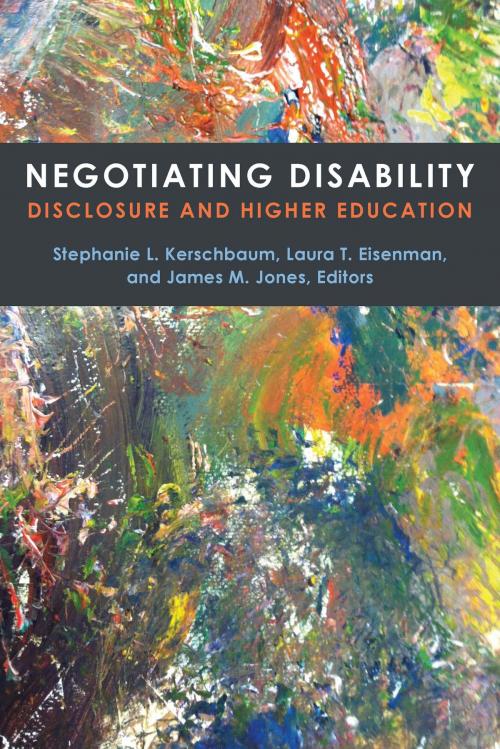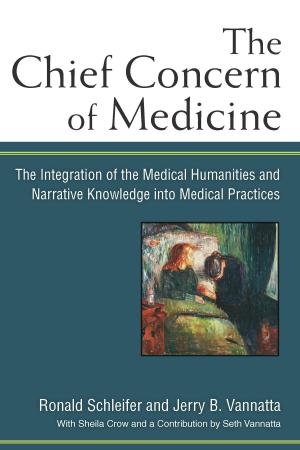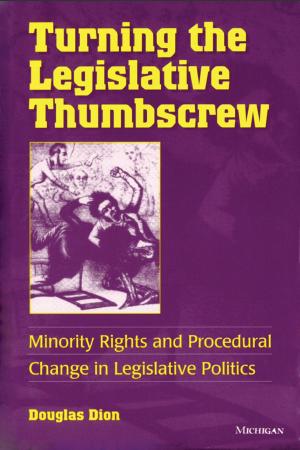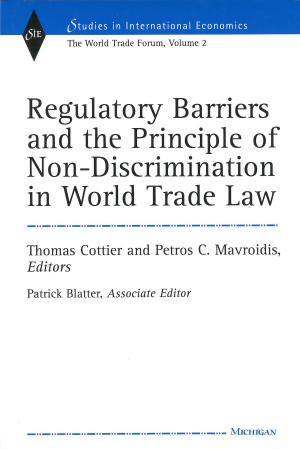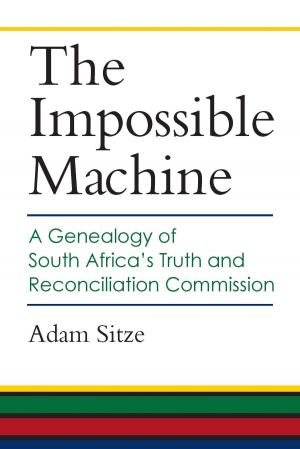Negotiating Disability
Disclosure and Higher Education
Nonfiction, Health & Well Being, Health, Ailments & Diseases, Physical Impairments, Social & Cultural Studies, Social Science, Disability| Author: | Stephanie L Kerschbaum, Laura T Eisenman, James M Jones | ISBN: | 9780472123391 |
| Publisher: | University of Michigan Press | Publication: | November 15, 2017 |
| Imprint: | University of Michigan Press | Language: | English |
| Author: | Stephanie L Kerschbaum, Laura T Eisenman, James M Jones |
| ISBN: | 9780472123391 |
| Publisher: | University of Michigan Press |
| Publication: | November 15, 2017 |
| Imprint: | University of Michigan Press |
| Language: | English |
Disability is not always central to claims about diversity and inclusion in higher education, but should be. This collection reveals the pervasiveness of disability issues and considerations within many higher education populations and settings, from classrooms to physical environments to policy impacts on students, faculty, administrators, and staff. While disclosing one’s disability and identifying shared experiences can engender moments of solidarity, the situation is always complicated by the intersecting factors of race and ethnicity, gender, sexuality, and class. With disability disclosure as a central point of departure, this collection of essays builds on scholarship that highlights the deeply rhetorical nature of disclosure and embodied movement, emphasizing disability disclosure as a complex calculus in which degrees of perceptibility are dependent on contexts, types of interactions that are unfolding, interlocutors’ long- and short-term goals, disabilities, and disability experiences, and many other contingencies.
Disability is not always central to claims about diversity and inclusion in higher education, but should be. This collection reveals the pervasiveness of disability issues and considerations within many higher education populations and settings, from classrooms to physical environments to policy impacts on students, faculty, administrators, and staff. While disclosing one’s disability and identifying shared experiences can engender moments of solidarity, the situation is always complicated by the intersecting factors of race and ethnicity, gender, sexuality, and class. With disability disclosure as a central point of departure, this collection of essays builds on scholarship that highlights the deeply rhetorical nature of disclosure and embodied movement, emphasizing disability disclosure as a complex calculus in which degrees of perceptibility are dependent on contexts, types of interactions that are unfolding, interlocutors’ long- and short-term goals, disabilities, and disability experiences, and many other contingencies.
